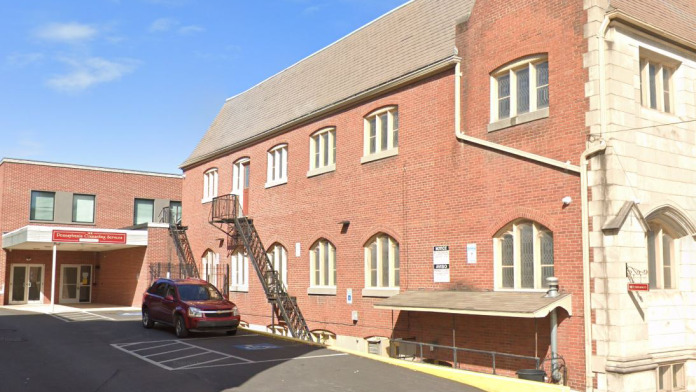About Pennsylvania Counseling Services – West Philadelphia Street
Pennsylvania Counseling Services (PCS) offers accessible outpatient therapy for adults and adolescents struggling with substance use disorders and mental health issues or both. This clinic is located on West Philadelphia Street in York less than a mile west of downtown and two miles south of US Route 30 for direct route access to nearby Lancaster and Gettysburg.
They strive to create a safe, conducive and nurturing outpatient setting where clients are inspired to discuss their struggles and get the support necessary to start healing. They even offer optional telehealth across all their service locations. Telehealth can be particularly helpful for clients staying in remote locations as it eases transportation constraints. PCS keeps costs low by accepting Medicare, Tricare and several major private insurance companies. This also ensures access to care for broader audiences.
Pathway to Recovery and Personal Growth
York Psychiatric Clinic guides clients toward lasting recovery and personal growth via quality, tailored care that addresses current and ongoing needs. They offer both general outpatient (OP) and intensive outpatient programs (IOP) to help adults over 18 navigate mental issues, unhealthy substance use and co-occurring disorders.
Therapeutic support is delivered in both group and individual formats by a multidisciplinary team of experts. These experts employ various proven methods like cognitive behavioral techniques and motivational interviewing to encourage change in behavior and thought patterns that often lead to substance dependence.
Specialized programming includes a Spanish recovery group that provides culturally responsive support and guidance for Spanish-speaking clients. They even offer Christian or spiritual counseling, which can help you find purpose and hope in recovery through connection to a higher power. Psychiatric evaluation and medication management may be provided as part of integrated care for patients with co-occurring disorders. This ensures well-rounded care that fosters general wellness of the mind, body and spirit.
Specialized Adolescent Recovery
The experts at PCS employ contingency management to help adolescents aged 12 to 17 navigate recovery. Contingency management is a proven approach that combines behavior management with cognitive behavioral techniques to promote lasting abstinence.
The technique basically rewards positive behavior like attending therapy or abstaining from drug/alcohol use with incentives such as vouchers or small prizes. Adolescents in recovery may receive a gift card for passing a drug test. This can help reinforce their motivation to stay sober. Emphasis is placed on weakening the rewards associated with using drugs by substituting them with healthier activities that encourage lasting abstinence.
Adolescent recovery in PCS highly emphasizes the involvement and support of your family, caregivers and even other natural support networks. Teens attend between 14 and 18 therapy sessions during the program to build practical coping and relapse prevention strategies. Sessions are tailored so teens can continue schooling and other daily routines while receiving care. The program also involves drug screening to monitor progress and compliance with treatment guidelines. PCS also offers school-based adolescent outpatient recovery, truancy prevention services and student assistance programs.
Latest Reviews
Rehab Score
Gallery


Addiction Treatments
Levels of Care
Outpatient Programs (OP) are for those seeking mental rehab or drug rehab, but who also stay at home every night. The main difference between outpatient treatment (OP) and intensive outpatient treatment (IOP) lies in the amount of hours the patient spends at the facility. Most of the time an outpatient program is designed for someone who has completed an inpatient stay and is looking to continue their growth in recovery. Outpatient is not meant to be the starting point, it is commonly referred to as aftercare.
Intensive Outpatient Programs (IOP) are for those who want or need a very structured treatment program but who also wish to live at home and continue with certain responsibilities (such as work or school). IOP substance abuse treatment programs vary in duration and intensity, and certain outpatient rehab centers will offer individualized treatment programs.
12-step programs are addiction recovery models based on Alcoholics Anonymous (AA). A number of substance abuse programs (including some drug and alcohol rehab centers) use the 12 steps as a basis for treatment. Beginning steps involve admitting powerlessness over the addiction and creating a spiritual basis for recovery. Middle steps including making direct amends to those who've been hurt by the addiction, and the final step is to assist others in addiction recovery in the same way. 12-Step offshoots including Narcotics Anonymous (NA), Cocaine Anonymous (CA), Dual Recovery Anonymous (DRA), Sex and Love Addicts Anonymous (SLAA) and Gamblers Anonymous (GA).
Completing a drug or alcohol rehab program shouldn't spell the end of substance abuse treatment. Aftercare involves making a sustainable plan for recovery, including ongoing support. This can include sober living arrangements like halfway houses, career counseling, and setting a patient up with community programs like Alcoholics Anonymous (AA) or Narcotics Anonymous (NA).
Treatments
Mental health rehabs focus on helping individuals recover from mental illnesses like bipolar disorder, clinical depression, anxiety disorders, schizophrenia, and more. Mental health professionals at these facilities are trained to understand and treat mental health issues, both in individual and group settings.
Substance rehabs focus on helping individuals recover from substance abuse, including alcohol and drug addiction (both illegal and prescription drugs). They often include the opportunity to engage in both individual as well as group therapy.
Clinical Services
Cognitive Behavioral Therapy (CBT) is a therapy modality that focuses on the relationship between one's thoughts, feelings, and behaviors. It is used to establish and allow for healthy responses to thoughts and feelings (instead of unhealthy responses, like using drugs or alcohol). CBT has been proven effective for recovering addicts of all kinds, and is used to strengthen a patient's own self-awareness and ability to self-regulate. CBT allows individuals to monitor their own emotional state, become more adept at communicating with others, and manage stress without needing to engage in substance abuse.
Dialectical Behavior Therapy (DBT) is a modified form of Cognitive Behavioral Therapy (CBT), a treatment designed to help people understand and ultimately affect the relationship between their thoughts, feelings, and behaviors. DBT is often used for individuals who struggle with self-harm behaviors, such as self-mutilation (cutting) and suicidal thoughts, urges, or attempts. It has been proven clinically effective for those who struggle with out-of-control emotions and mental health illnesses like Borderline Personality Disorder.
In individual therapy, a patient meets one-on-one with a trained psychologist or counselor. Therapy is a pivotal part of effective substance abuse treatment, as it often covers root causes of addiction, including challenges faced by the patient in their social, family, and work/school life.
Motivational Interviewing (MI) is a clinical approach to helping people with substance abuse issues and other conditions shift behavior in positive ways. It is more goal-oriented than traditional psychotherapy, as MI counselors directly attempt to get clients to consider making behavioral change (rather than wait for them to come to conclusions themselves). Its primary purpose is to resolve ambivalence and help clients become able to make healthy choices freely.
Trauma therapy addresses traumatic incidents from a client's past that are likely affecting their present-day experience. Trauma is often one of the primary triggers and potential causes of addiction, and can stem from child sexual abuse, domestic violence, having a parent with a mental illness, losing one or both parents at a young age, teenage or adult sexual assault, or any number of other factors. The purpose of trauma therapy is to allow a patient to process trauma and move through and past it, with the help of trained and compassionate mental health professionals.
Staff

Roy Smith
Founder

Ruthie Davis
CEO

Becki Hager
CFO

Kimberly Ernest
President

Tim Nicklas
VP of Treatment Services

Patricia Barrios
VP of Financial Operations

Don Hager
VP of Information Technology

Leah Hannah
VP of Marketing & Development
Contact Information
301 West Philadelphia Street
York, PA 17401